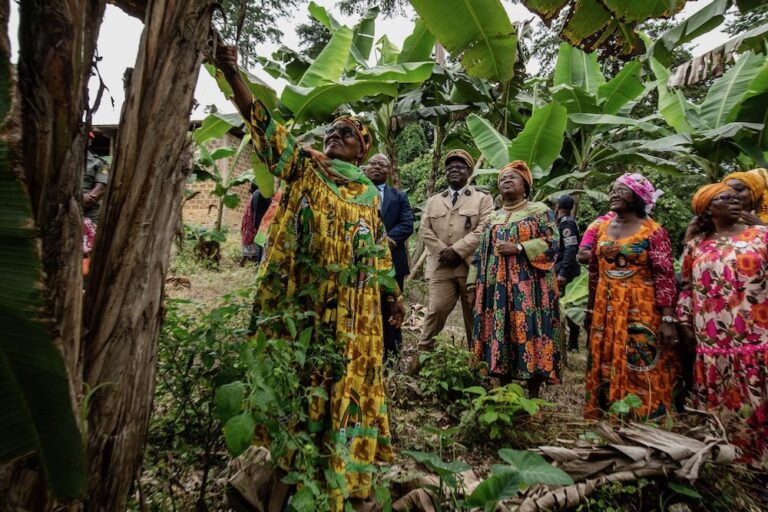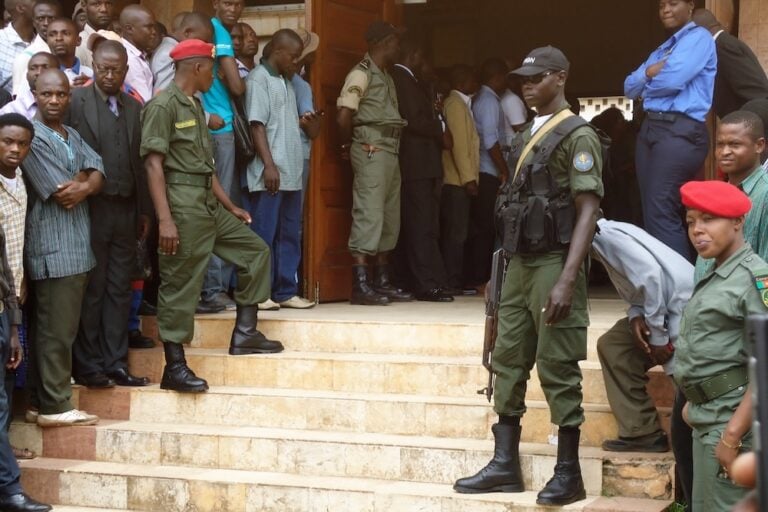RSF is calling on the government to enact a series of reforms that are needed to improve media freedom, including a new media law and the decriminalisation of press offences.
(RSF/IFEX) – 5 October 2011 – Reporters Without Borders visited Cameroon from 26 September to 2 October to assess the degree of media freedom during the campaign for the 9 October presidential election and to promote a series of reforms that are needed to improve media freedom, including a new media law and the decriminalization of press offences.
Communication minister and government spokesman Issa Tchiroma Bakary said a national conference on media and communication would be held in 2012.
“The media’s coverage of the campaign is trying to be balanced but the campaign itself is not,” Reporters Without Borders said. “President Paul Biya, who is running for reelection, and the ruling Cameroon People’s Democratic Rally (RDPC) are everywhere. Biya is the only candidate to be seen on campaign posters. The opposition is hardly managing to make its voice heard. Everyone agrees that there is little political debate and this is reflected in the media.”
“It is clear from the diversity of the media and the outspoken reporting style that press freedom is a reality in Cameroon. But much needs to be done to improve the media, protect journalists and enable them to work effectively. We stand ready to help the Cameroonian authorities carry out these reforms. They showed a readiness to listen. We are now waiting for them to act. The statements of good intention must be followed by action.”
Reporters Without Borders has written to the 23 presidential candidates asking them to give an undertaking to defend and promote media freedom if elected.
The press freedom organization also handed in a formal note to the government urging it to organize a national conference on media and communication in the very near future, to reform the legal and institutional system affecting the media, and to decriminalize press offences.
The decriminalization of media offences would protect journalists from being jailed in connection with their work. Cameroon’s image was badly damaged by the death of Germain Ngota Ngota, a newspaper editor also known as Bibi Ngota, in Yaoundé’s Kondengui prison in April 2010. It highlighted the fact that journalists can still be sent to prison in Cameroon and do not receive adequate medical care while there.
Cameroon had risen 20 places (to 109th) in the 2009 Reporters Without Borders press freedom index but it fell by a similar number in 2010 as a result of this tragedy.
Decriminalization does not put journalists beyond the law and does not mean they are free to do as they like. A press offence can still be punished, but only by measures that are fair, appropriate and proportionate, not by prison sentences.


